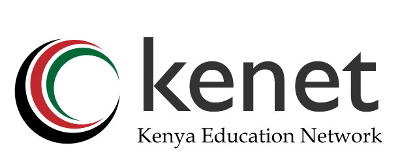You are here
Africa Nazarene University's Journey with KENET's Digital Campus Infrastructure
- Posted on: 10 February 2025
- By: admin
The growing demand for modern teaching, learning, and research in educational institutions has necessitated significant infrastructural upgrades. In response, Africa Nazarene University (ANU) has embarked on a transformative initiative to enhance its digital campus infrastructure through a partnership with KENET's Digital Campus Infrastructure (DCI) initiative. This collaboration aims to address persistent challenges related to internet accessibility and reliability across the campus, thereby transforming Learning, Research and Working environments using technology
Before the implementation of DCI, ANU faced significant challenges in its digital infrastructure. One of the most pressing issues was the lack of comprehensive Wi-Fi coverage, particularly in student hostels, which restricted the use of modern tools of education like E-learning, online classes and access to online libraries for resident students.
Additionally, the network suffered from bottlenecks due to the inadequate capacity of wireless access points, hindering the effective utilization of the available bandwidth of 1.357 Gbps for a student population of approximately 2,000. As Mr. George Athoye, Head of ICT at ANU, noted, "The number one challenge was, of course, the gaps in Wi-Fi coverage. We didn't have coverage in the student residences."
Students using Wi-Fi outside Zanner Hall, one of the hostels where the network was improved.
Recognizing these challenges, ANU initiated discussions with KENET to explore solutions that would enhance its network capabilities. The decision to partner with KENET was driven by the realization that the university was not fully leveraging its internet capacity. "After identifying this issue, we began discussions with KENET. A team conducted a network survey to pinpoint the bottlenecks," explained Mr. Athoye. This partnership proved invaluable, as KENET provided technical support without requiring ANU to allocate significant financial resources.
Since the completion of the DCI project, ANU has experienced remarkable improvements in its digital infrastructure. Student complaints regarding internet connectivity have significantly decreased, with reports highlighting faster connection speeds and broader Wi-Fi coverage across the campus. Faculty members can now seamlessly use personal laptops for teaching, creating a more dynamic and interactive learning environment.
The upgraded digital infrastructure has had a profound impact on teaching and learning at ANU. Faculty members can now access educational resources effortlessly during lectures, fostering a more engaging and interactive learning atmosphere. Early adopters among the faculty have already begun leveraging the improved Wi-Fi to implement innovative teaching methods, underscoring the potential for further advancements in educational delivery.
Looking ahead, the enhanced digital infrastructure aligns with ANU's strategic goal of digital transformation. By establishing a robust foundation for digital initiatives, the university is well-positioned to undertake additional projects that will enhance academic offerings and operational efficiency. The DCI project is not merely an upgrade; it represents a critical step toward achieving broader institutional objectives.
The collaboration between ANU and KENET exemplifies how strategic partnerships can drive significant advancements in educational infrastructure. As ANU continues to embrace digital transformation, the lessons learned from this initiative provide a valuable blueprint for other institutions facing similar challenges. By prioritizing connectivity and accessibility, universities can better support their communities and prepare for an increasingly digital future.
